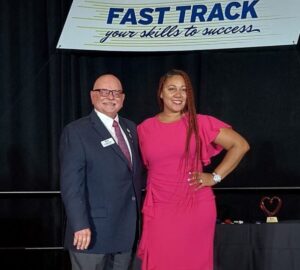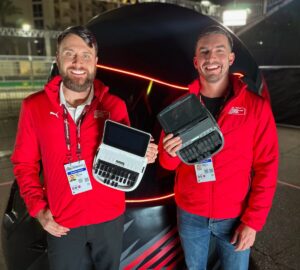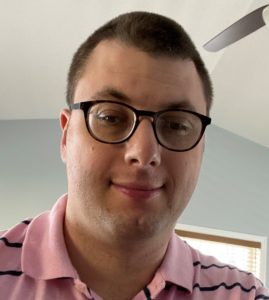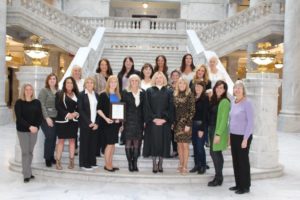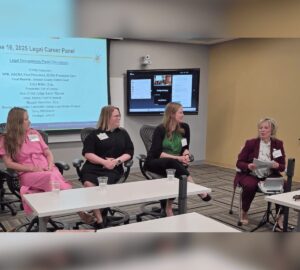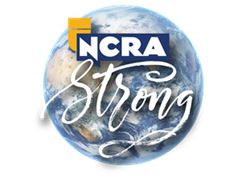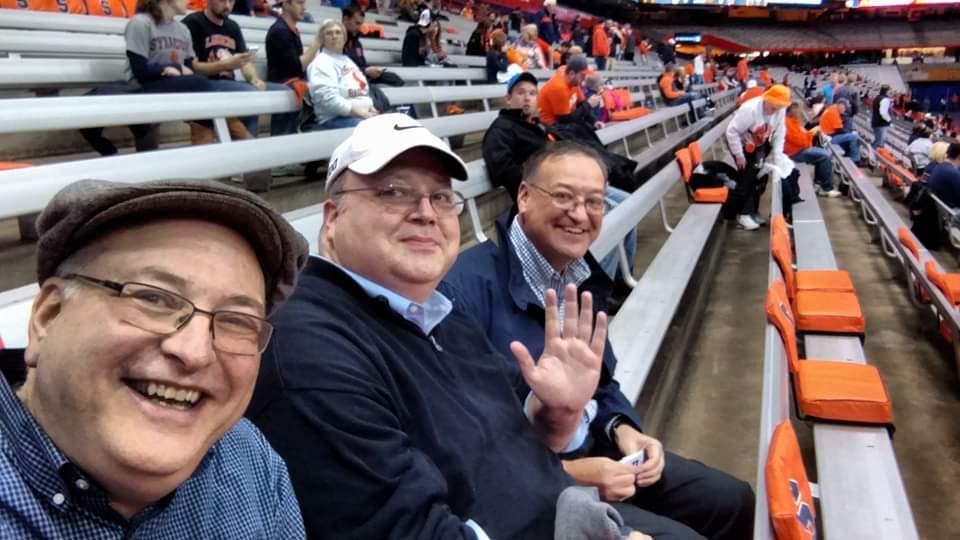
By Heidi Renner
Brothers Adam and Aaron Alweis recently each reached career milestones. They were both named the chief reporter for their respective courts in the New York State Unified Court System this year. Aaron, RPR, CRR, CRC, is chief in the 6th District and Adam, RPR, in the 5th District, but their careers as court reporters started well before 2019.
Their father, Edward, was a court reporter who retired in 1989, and they also had two uncles and an aunt who worked in the profession. It can all be traced back to their grandmother who owned a diner in Miami Beach in the 1940s. One day a court reporter came in, sat down, and ended up telling her all about his job. She decided it sounded like a great opportunity and told her children that’s what they should do. Their father had just started in court reporting when he went in the Army and worked in the Judge Advocate General Corps. They say it probably saved him from going overseas to Korea.
“We grew up in the profession,” Adam said. “We had some involvement most of our lives. It sort of just happened that way.”
Aaron said their father thought it was very important for them to have a marketable skill. They also say credit must go to the tremendous support their mother, Mary, has given to their father and how encouraging and supportive she has always been to her three boys.
“I was typing transcripts for my father since I was 12 years old,” Aaron said.
“I got out of school and within 12 hours, I was doing my first deposition,” Adam said.
At one time the family owned a freelance reporting agency and all three brothers worked for it. The third brother, Ken, is now a lawyer and partner in the firm of Goldberg Segalla.
Both brothers remember their father saying: “Thank God I found this profession; otherwise, I don’t know what I’d end up doing.”
Aaron went to graduate school for business, which he said has worked very well with being a court reporter. He was looking for a marketing position after college but didn’t find one, so he went back to court reporting and has stayed there.
Both Adam and Aaron started official court reporter positions and have been working in the courts for years.
They talk to each other often about their jobs.
“We bounce ideas off each other all the time,” Adam said.
Aaron has taught his children to scope, but he said none of them have wanted to start a career in court reporting. They both say they are in a profession where you are never bored.
“You’ll never find another profession where you are continually challenged by the material in front of you,” Adam said.
“It’s fascinating, it’s better than TV, it’s a front-row seat to history,” Aaron said. “It’s a tremendous field. You can come into the field from any background. Whatever you bring into it adds to your knowledge base.”
Aaron said he remembers the first time he offered realtime in 1992 in a case involving a defendant who was deaf. Back then, offering realtime involved carrying a 50-pound computer into the courtroom. They also set up a viewing area for people from the community who were deaf and wanted to watch the proceedings.
“The advantages today are just tremendous,” Aaron said. “I recently did a CART assignment (outside court) where I sat with a hearing-impaired person at a conference. They were so appreciative to have access to what was going on. It’s because of the court reporting profession that people can do this. You make a difference in people’s lives.” Aaron also said he has been “incredibly fortunate to have the support and love and understanding from my wife, Miriam, through all of the very long hours involved in being a court reporter.”
“The advantages are far more than when we started,” Adam said. “We didn’t have realtime or captioning. Now with the technology, there is so much people can do with us. We are dying to have new blood come into the profession. This is a great field to get into; people should really think about it.”
While every day brings something new in their careers, both brothers have some cases that stick in their minds more than others.
Aaron remembers a case involving the death of the former New York Yankees manager Billy Martin and through that meeting some very interesting people.
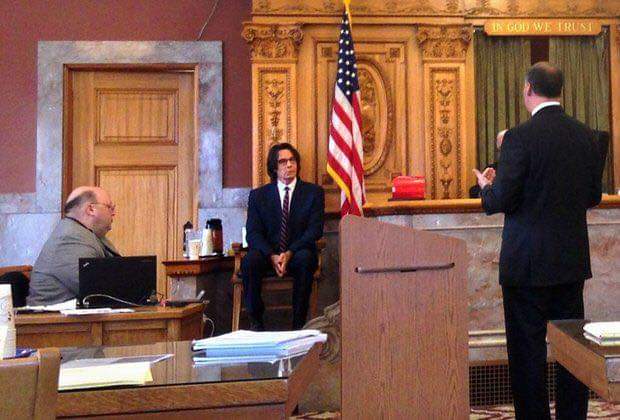
Adam remembers an unusual case involving singer Rick Springfield being sued.
Adam said when Springfield got up to testify, he was fascinated at what Adam was doing and asked how he did it. Adam told Springfield it was like writing music, and the keys are like putting notes together.
“If it helps, you can think of me as the rock-and-roll court reporter,” Adam told him.







